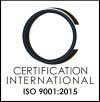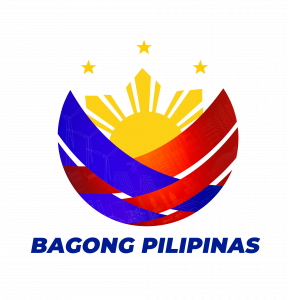DONATE
Donate
Policy Statement on Accepting Donations
The National Library of the Philippines welcomes and appreciates gifts and donations from individuals, organizations, and corporations that align with our mission and collection development goals. Donated materials contribute to the enrichment and expansion of our library resources, enabling us to better serve our library clients. These gifts/donations can include books, as well as non-book materials such as manuscripts, rare documents, audio-visual materials, electronic resources, e-books, and other relevant resources.
A. Types of Materials/Publications to be accepted
The National Library of the Philippines (NLP) accepts various types of library materials based on certain criteria. Here are the types of materials that are generally considered for acceptance:
- Filipiniana Books
- Those that were printed in the Philippines, regardless of the subject matter
- Those about the Philippines, regardless of the language in which they were written or the location in which they were printed
- Those written by Filipinos on any subject, independent of imprint
-
Research Materials – materials that have research significance and are appropriate to NLP collection. These materials enhance the ability to support scholarly pursuits, facilitate in-depth research, and provide access to valuable historical and cultural resources. By accepting donations of these research materials, NLP aims to expand the breadth and depth of its collection, ensuring that the institution offers a comprehensive range of resources to meet the needs of researchers, scholars, and library users.
-
Foreign books – foreign books that have been published within the last 5-10 years, provided they are relevant to any field or subject. These books contribute to the library’s commitment to offering up-to-date and comprehensive resources across a wide range of topics.
-
Fiction books – are bestsellers and classics. These books captivate readers’ imaginations and provide a diverse range of literary experiences. Bestsellers reflect popular contemporary literature, while classics have stood the test of time and continue to be cherished for their enduring literary value. By adding these books to the library collection, NLP ensures that patrons have access to both current and timeless works of fiction.
-
Children’s books – play a crucial role in fostering a love of reading and learning among young readers. By accepting children’s books in excellent condition, we aim to provide engaging and enriching reading materials for children of various ages and reading levels. Additionally, good-quality paperbacks offer a more accessible format for young readers to enjoy.
-
Magazines, journals, and other continuing resources that have been published within the last 3-5 years are accepted. These materials contribute to keeping the library’s collection up-to-date and relevant.
-
Non-Print Materials – including but not limited to maps, globes, photographs, DVDs, CD-ROMs, audiobooks, e-books, and e-resources. These materials provide additional avenues for learning, entertainment, and exploration for our library users.
-
Special Collections – may include a diverse range of reading materials, manuscripts, pamphlets, newspaper clippings, and memorabilia that have been thoughtfully collected by prominent individuals. The primary objective of this collection is to preserve the authenticity and historical significance of each collection while paying homage to the original owners.
B. Types of Materials/Publications not to be accepted
The NLP (National Library of the Philippines) does not accept certain types of materials due to their poor physical condition or lack of relevance. Here are the categories of books and materials that are generally not accepted:
-
Textbooks and Workbooks – Books specifically designed for educational purposes, such as textbooks and workbooks, are not accepted. These materials are typically intended for classroom use and may not align with the NLP’s collection focus.
-
Dirty, Moldy, Burnt, Water-damaged Materials – Books in poor physical condition, such as being dirty, moldy, burnt, or water-damaged, are not accepted. These materials may be difficult to preserve and provide a poor reading experience for library users.
-
Damaged Binding or Pages – Books with damaged bindings or pages, such as torn or missing pages, are not accepted. Materials should be in good condition to ensure their usability and longevity.
-
Termite-Infested Materials – Books infested with termites or other pests are not accepted, as they can pose a risk to other materials in the library’s collection.
-
Excessive Writing, Marking, or Highlighting – Books that have excessive writing, marking, or highlighting throughout the pages are not accepted. These markings can impede readability and may diminish the value of the material
-
Outdated Foreign Books/encyclopedias – Foreign books that are outdated or not current are generally not preferred. The NLP aims to maintain a collection of materials that are relevant and up-to-date.
-
Used Textbooks, Workbooks, and Laboratory Manuals – Donations of used textbooks, workbooks, laboratory manuals, and similar materials are not accepted. These materials are often specific to individual courses or curricula and may not be suitable for inclusion in the NLP’s collection.
-
Photocopies or Loose-Leaf Publications – Photocopies or loose-leaf publications are not accepted as donations. The NLP typically seeks original printed materials for its collection.
-
Conference Programs without Papers – Conference programs that do not include the papers presented are not accepted. The NLP prioritizes materials that provide complete and comprehensive information.
-
Out-of-date travel books – does not accept out-of-date travel books as donations. As part of our commitment to maintaining a current and relevant collection, we prioritize travel books that provide up-to-date information and accurate insights into various destinations.
C. Procedure for donating library materials
-
Donors shall complete the Online Donation form using the link https://bit.ly/4ewfvKC or QR code before submitting the library materials for donation.

Evaluation of Donated Materials – Upon receipt of the submitted online donation form, the acquisition staff shall evaluate the titles of publication based on various factors, such as their relevance to the library’s collection development policy, condition, duplication, and potential research or educational value.
CDD will inform the potential donors via email regarding the acceptance or approval of donated library material. Submission of donation shall be made through walk-in, via courier, through pick up, or via email (electronic)
Walk-in: Donor shall proceed to the NLP Info desk and present donated library materials and the written formal requests for certification or acknowledgment receipt
- Via Courier: Donor shall send donated library materials via courier or postal mail service
- NLP Pick-up: Scheduling of dropped off or pick-up of donated materials -Once the evaluation is completed and the donated materials are deemed suitable for acceptance, arrangements are made for the drop-off or pick-up of the donated items. The library coordinates with the donor to determine the most convenient time and method for transferring the materials to the library’s possession. This may involve scheduling a drop-off at the library or arranging a pick-up from the donor’s location.
- Via email: Electronic publications in PDF format may be sent or shared to cdd@nlp.gov.ph
Acknowledge receipt of gifts/donations – Upon receipt of the donated materials, the library acknowledges the generosity of the donor by providing a certificate of donation and acknowledgment receipt (whichever is applicable) in print or digital copies. This receipt serves as proof of donation for record-keeping purposes. The acknowledgment process ensures transparency and gratitude towards the donors, recognizing their contribution to the library’s collection.
- For 1-10 volumes of library materials – Acknowledgment receipts on the day the library materials are received
- For bulk and multiple copies of library materials – Within 3 working days


